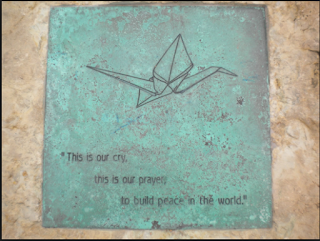*I decided to write
this letter after reading a comment written by a self-identified autistic adult
advocate. According to the comment that
she left on the forum, her mission is to educate, but lately she feels like
giving up because so many people attack her words rather than taking her
message to heart. I want to her to know
that, as a parent of an autistic child, I hear her and I appreciate her words
and insight. Now, more than ever, the autistic
perspective is needed.
Dear Autistic Adult*,
We have never met before in person, but I want to thank you.
First, allow me to introduce myself.
I am a mom of an amazing seven-year-old named Ben.
I’ve changed his name to protect his right to privacy.
Ben is autistic. I am
not.
When Ben was first received his autism diagnosis, I became shamefully
aware of how little I really understood about autism. I was a novice in the world of disability, but
I quickly dove into researching anything I could find on the subject. I quickly realized that there is a lot of
conflicting information out there. For a
short while, I let the so-called experts scare me with their doom and gloom
prognosis. During that time, I allowed
myself to give in to worry and doubts about my child’s future.
Somewhere early into my journey, I discovered you. I came across your blog. I read
your comment in an autism forum. I met
you through a Facebook page devoted to autism acceptance.
Even though it was hard to hear, I listened to your words.
I realized that, even if you and my son come from different
points on the autism spectrum, you understand his neurology in a way that I
never can or will. You have lived his
journey and are speaking from a place of experience. You are the true expert- more than any doctor
with a PHD ever can be.
I listened and realized how much I still needed to learn.
I realized my perspective was off.
I realized I was busy feeling sorry for myself, but it
wasn’t about me at all.
This was about him.
I listened and began seeing my son’s autism in a brand new
light.
You taught me that autism is not a disease and therefore
does not need a cure.
You taught me to steer clear of those promising cures and to
be wary of organizations without any autistic representation on their governing
boards. Read more about why I won't support organizations such as Autism Speaks here.
You taught me to love the child who I have rather than
mourning the loss of the child I had expected him to be. Read Jim Sinclair's eloquent post called "Don't Mourn for Us" here.
You taught me that his autism permeates every aspect of who
he is. It is as much a part of him as
his gender or his eye color. You cannot
separate autism from the person- nor would you want to, because even though
autism brings its challenges, it also brings amazing strengths. And all of us have challenges, whether we are
autistic or not.
You taught me about ableism and inspiration porn and the dangers of therapies that seek to
make a child indistinguishable from his peers. I learned about the insidious nature of quiet hands.
You taught me that no one “grows out” of their autism and the
price the body pays when it tries to “pass” as normal for too long.
You taught…and I learned.
I learned about identity-first language versus person-first language and why most prefer the term "autistic" to "person with autism". I changed the way I used those words and explained my reasons to my colleagues when they asked why.
I’ve learned to ask for consent when writing about my son’s
experiences. I’ve realized that they are
his stories to tell more so than my own.
My son is not an object to serve as a teachable moment, an inspiration,
or something to pity. He is a child who
will someday grow into an adult. I have
to respect his privacy first and foremost.
I realize that, for too long, parents like me have
controlled the narrative about autism, and the autistic perspective was missing
entirely. I hope this continues to
change.
I know it hasn’t been easy for you to share your
perspective. I know that parents have
said harsh and hurtful things to you. I’ve
seen so many online forums become battlegrounds rather than safe spaces. I know it must be tiring to seek to educate-
to explain the same message over and over- as you meet new parents who don’t
“get it”, as I once didn’t. Sadly, I do
not see an end to the great divide in our community any time soon.
But I’m here to tell you that it is worth it.
Because, by educating me, you are making me a better parent
for my child.
You are making me a better teacher for the children I
educate.
You are making me a better writer, advocate, and human.
There is so much work to do.
Please don’t give up just because the divide seems
insurmountable.
Please know that there are other parents like me who are
quietly listening and learning.
You have the power to change perspective.
Because, though I may not share your neurology, I share your
mission.
I share your desire for respect and equal access to
education, employment, and opportunity.
No exceptions.
Respectfully Yours,
Jessica

